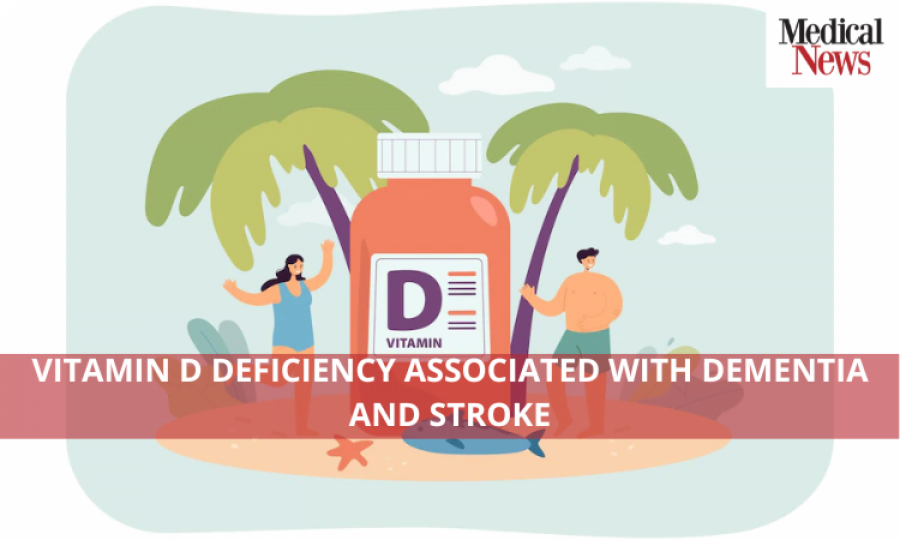Vitamin D deficiency associated with dementia and stroke

Vitamins play a major role in maintaining a person’s health. Vitamin D is an essential vitamin that is important for bones and immune function. Vitamin D is vital to bone metabolism, calcium absorption, and other metabolic processes in the body. The majority of this vitamin comes from the sun instead of food. Research suggests that also has a role in brain function, cognition, and aging. The deficiency is more prevalent in the South Asian population, especially in women.
Association with dementia:
Alzheimer’s is the most common form of dementia which comprises a range of symptoms including memory loss and difficulties with cognition that impact daily life. New research led by the University of South Australia supports a relationship between vitamin D deficiency and brain health, importantly for the risk of dementia. The major association was seen with 25-hydroxyvitamin D concentrations less than 25 nmol/L. Though they conveyed that larger studies need to be done to fully determine a causal effect. Yet, this relationship is noteworthy and may prevent the incidence of dementia in older patients.
Association with stroke:
Literature shows that vitamin D deficiency is a significant risk factor for ischemic stroke, with sun exposure, sex, age, race, and genetics playing a role as well. The severity of a stroke and the outcomes also worsen with vitamin D deficiency. One study suggested that only severe vitamin D deficiency was associated with an incident of stroke. A study conducted in China concluded that “Vitamin D level less than 38.4 nmol/L at admission is a potential risk biomarker for poor functional outcome at 5-year prognosis in AIS patients, which might provide new ideas for the prognostic assessment of stroke.” Hence, the deficiency of Vitamin D could also be a risk factor for stroke.
In Conclusion, Vitamin D deficiency should be countered as it’s related to these two diseases. Even though there is not much research supporting this science but it will not hurt to take a daily dose of this vitamin to maintain a balanced lifestyle. Healthy regular nutrition is the way to a healthy life.
Advertisement
Trending
Popular
Hair loss: Discovery uncovers key stem cells that could reverse ...
-
Broccoli sprout compound may help lower ...
11:31 AM, 25 Feb, 2025 -
Gas Pain vs. Heart Attack: How to tell ...
09:00 PM, 22 Feb, 2025 -
Coconut oil supplement shows promise ...
08:00 PM, 20 Feb, 2025 -
Normal vitamin B12 levels may still ...
05:00 PM, 19 Feb, 2025



